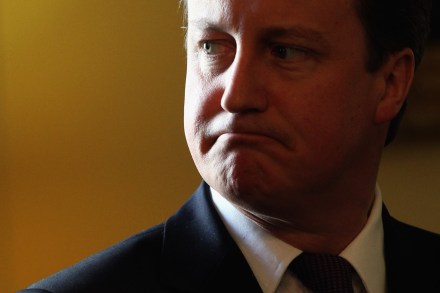Where will the disenchantment with mainstream politics lead?
The big question in British politics right now is what happens when the voters are dissatisfied with all the three main parties and their leaders. According to a recent opinion poll, David Cameron’s approval rating is now down to minus 27. According to the invaluable Anthony Wells, this is the lowest it has been since Cameron became Tory leader. But the PM’s numbers look positively healthy compared to Miliband’s (minus 41) and Clegg’s (minus 53). Dissatisfaction with political leaders isn’t the only indicator that people aren’t happy. As I report in the column this week, senior Downing Street aides have been much struck by polling showing that more than 40



















